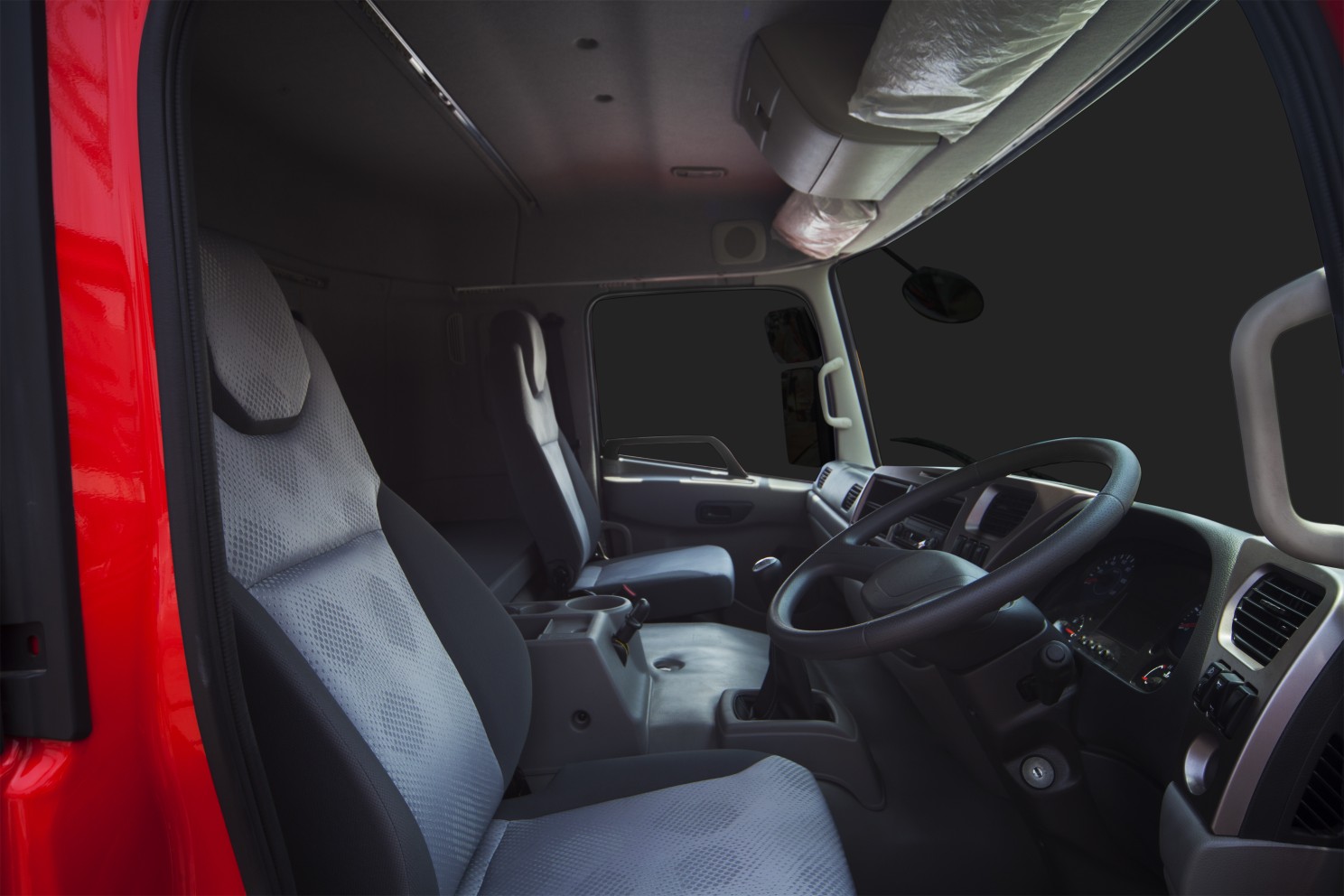
Susie Jones
Penki geriausi patarimai, kaip paversti sunkvežimio kabiną namais
Sukurta: 22-08-2024
•
Atnaujinta: 22-08-2024
Būdamas sunkvežimio vairuotojas, kelyje praleidžiate daug valandų, kurios dažnai būna varginančios ir monotoniškos, todėl natūralu, kad norėtumėte, jog aplinka, kurioje esate ilgiausiai, būtų tarsi antrieji namai. Todėl daugelis vairuotojų linkę pritaikyti ir dekoruoti savo kabinas, tačiau kokie yra geriausi būdai, kad miegamoji kabina būtų įrengta taip, kad jaustumėtės kaip toli nuo namų? Surinkome penkis geriausius patarimus, kurie padės jums šiame kelyje.
Apdaila
Vienas iš geriausių būdų suasmeninti kabiną - pridėti dekoracijų, kurios primena namus. Dekoracijos taip pat leidžia pridėti stiliaus ir spalvų.
Patalynė ir pagalvėlės - įneškite asmeninio akcento į savo patalynę ir pagalvėles, pasirinkdami tokias, kurių spalva ar raštas jums patinka. Taip jūsų kabina taps jaukesnė ir ne tokia sustingusi.
Sėdynių užvalkalai - sėdynių užvalkalai dažnai būna įvairių spalvų, raštų ir medžiagų, kurios pagyvins jūsų kabiną. Jie ne tik suteiks kabinai daugiau jaukumo, bet ir apsaugos saloną nuo nusidėvėjimo, purvo ir išsiliejimų. Amazon paprastai turi didelį spalvų pasirinkimą.
Kilimėliai, užuolaidos ir širmos - išsirinkę kilimėlius ir užuolaidas galite pakeisti kabinos interjerą. Užuolaidos ne tik suteiks estetinę vertę, bet ir padės jums gerai išsimiegoti.
Nuotraukos, plakatai ir meno kūriniai - šie daiktai neužima daug vietos jūsų kabinoje ir gali iškart suteikti jai namų pojūtį. Naudokite komandinius kabliukus, kad jų nesugadintumėte.
Pramogos: Pasibaigus vairavimo dienai, atsipalaiduokite kaip ir namie žiūrėdami televizorių, DVD arba žiūrėdami transliacijas nešiojamuoju kompiuteriu. Prieš pradedant transliuoti, jums reikės "Wi-Fi", todėl būtinai apsilankykite mūsų [žemėlapių puslapyje] (https://snapacc.com/map/) ir sužinokite, kuriose stotelėse teikiama ši paslauga.
Arba sukurkite išmaniojo telefono prieigos tašką, kuriame srautiniam siuntimui bus naudojami telefono duomenys. Knygos ir žurnalai - dar vienas puikus būdas pramogauti po ilgos vairavimo dienos. Kartais paprastas vaizdo skambutis draugams ar šeimai gali padėti atsipalaiduoti ir pasijusti kaip namie.

Comfort
Kabinoje praleidžiate daug laiko, todėl svarbu, kad jūsų patogumas nebūtų kompromisas. Kodėl gi neinvestavus į šiuos dalykus:
Čiužinio užvalkalas - tinkamas miegas yra labai svarbus jūsų ir kitų žmonių saugumui. Investavę į gerą čiužinio užvalkalą užtikrinsite, kad miegoti būtų patogu.
Ergonomiška vairuotojo sėdynė - didžiąją laiko dalį praleisite sėdėdami vairuotojo vietoje, todėl svarbu užtikrinti, kad ji būtų kuo patogesnė ir patogesnė. Investuokite į ergonomišką vairuotojo sėdynę arba pagalvėlę, kuri palaikys jūsų nugarą ilgas valandas.
Papildomos pagalvės ir antklodės - Kaip jau minėta, įsigiję patinkančios spalvos ar rašto patalynę ir pagalvėles, galėsite jaustis kaip namie. Apsvarstykite galimybę įsigyti papildomų pagalvių ir antklodžių, kad kabina taptų dar asmeniškesnė ir būtų dar patogesnė.
Virtuvės erdvė / prietaisai
Į kabiną įdėję mini šaldytuvą arba mikrobangų krosnelę galėsite ruošti maistą kaip namuose, todėl jums nereikės naudotis sunkvežimių stotelėmis ir valgyti lauke. Siūlome pagalvoti, kokių daiktų jums reikėtų šioje srityje, pavyzdžiui, jei mėgstate gerti kavą, pabandykite įsigyti nedidelį kavos aparatą. Naudodami savo virtuvės erdvę ir prietaisus ne tik neišleisite daugybės pinigų valgymui lauke, bet ir padarysite geresnę įtaką savo bendrai sveikatai.
Laikykite daiktus švarius ir tvarkingus
Gyvenimas mažoje erdvėje gali greitai tapti gana netvarkingas. Skirdami laiko ir pastangų reguliariam valymui, galite padaryti stebuklus savo psichinei sveikatai ir dirbti efektyviau ir veiksmingiau. Tai padaryti padės daiktams skirtos vietos, o ProDrivers pateikia keletą puikių patarimų, kaip palaikyti tvarką.
Kaip sunkvežimių vairuotojai kovoja su nuoboduliu?
Nuobodulys turi įtakos ne tik pasitenkinimui darbu, bet ir darbo saugai. Yra daugybė būdų, kaip sunkvežimių vairuotojai gali pramogauti kelyje.
Muzika ir podcast'ai: Muzikos klausymasis - puikus būdas vairuotojams suteikti pramogą ilgų kelionių metu. Sukūrę mėgstamų dainų grojaraštį galite akimirksniu sumažinti nuobodulį. Podcast'ai - puikus būdas paįvairinti laiką, nes daugelis jų gali patarti, padėti išmokti naujų įgūdžių arba tiesiog prajuokinti.
Kojų tempimas: Sustojimas ir išlipimas iš kabinos ištiesti kojas gali akimirksniu išvyti nuobodulį. Reguliarus sustojimas taip pat gali padidinti jūsų energiją.
Kur miega sunkvežimių vairuotojai?
Nuo lapkričio 1 d. JK sunkiasvorių sunkvežimių vairuotojai, kurie reguliariai kas savaitę daro pertraukas kabinoje, nuo šiol privalo jas daryti tinkamose poilsio vietose. Kadangi tokių aikštelių yra nedaug, kai kurie vairuotojai ilsėdavosi šalikelėse, kurios dažnai yra nesaugios. Todėl labai svarbu rasti saugią, patikimą ir ramią vietą, kur būtų galima sustoti ir gerai išsimiegoti ar pailsėti. Naudodamiesi mūsų intruck programėle arba apsilankę mūsų [žemėlapių puslapyje] (https://snapacc.com/map/) galite rasti netoli jūsų esančią sunkvežimių stovėjimo aikštelę ir peržiūrėti, kokios paslaugos siūlomos.
Kaip sunkvežimių vairuotojai susidoroja su vienatve?
Nors sunkvežimio vairuotojo darbas turi daug privalumų, vienas iš šios profesijos trūkumų gali būti vienatvė. Daugeliui vairuotojų tai gali būti problema, nes dėl savo darbo pobūdžio jie jaučiasi izoliuoti. Planuodami palaikyti ryšį su draugais ir šeimos nariais, vairuotojai gali gauti postūmį kelyje. Sunkvežimių forumai, "Facebook" grupės ir pokalbių kambariai yra puikūs, jei norite tapti sunkvežimių vairuotojų bendruomenės dalimi. [All Trucking] (https://www.alltrucking.com/faq/how-beat-being-lonely-truck-driver-road) pateikiama keletas puikių patarimų, kurie padės jums, kaip sunkvežimio vairuotojui, kovoti su vienatve kelyje.
Kad sunkvežimio kabinoje jaustumėtės kaip namuose, reikia šiek tiek pastangų ir kūrybiškumo, tačiau tai padės palengvinti ilgas keliones. Svarbu nepamiršti, kad maži akcentai gali labai pakeisti jūsų gyvenamąją erdvę, o naudodamiesi pirmiau pateiktais patarimais galėsite ją paversti patogia ir jaukia. Kaip savo kabinoje jaučiatės kaip toli nuo namų?



